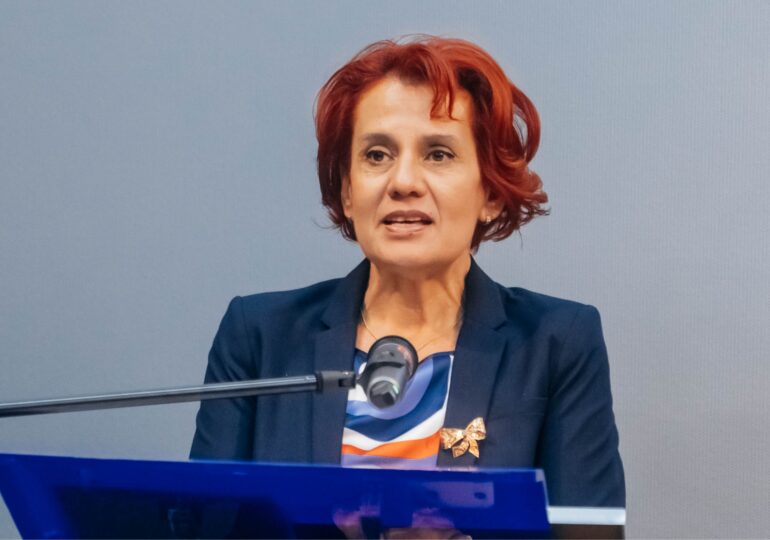With the clarity that is part of his brand, interim president Ilie Bolojan dismantled one of the most intense and either shameless or incompetent campaign promises – that he would become prime minister after the new president was installed.
Except for George Simion, who has his own electoral vampire premier, Călin Georgescu, most candidates have explicitly stated or hinted that Ilie Bolojan will be their proposed prime minister.
All sorts of online influencers (with or without a financial mandate code, as we are principled) have already established the tandems we would have to choose from: "Antonescu with Ciolacu, Simion with Georgescu, N.Dan with Bolojan. So which pair do we choose?"
Either they have no idea how things work, which I don't suspect some, or they shamelessly manipulate by capitalizing on the popular trust, primarily earned through the seriousness of Ilie Bolojan.
Why?
Mr. Bolojan himself explained clearly, "the prime minister of everyone": "Politicians in the campaign aim to secure votes, and then, if in the example you gave, that Bolojan has an acceptable level of trust, we have no qualms about saying we'll make him prime minister, even though we have no possibility, we don't have a parliamentary majority. But if we say that, it could be that a percentage - two from him could reflect on us. It's an electoral technique."
The president-prime minister tandems were theoretically viable when presidential and parliamentary elections were synchronized. So the new president would begin his term almost simultaneously with the new parliament that had to invest in a new government.
The coupling of elections meant that the new president had a strong electoral force validated by elections around which a new majority could be created, with the promised prime minister from the campaign by the winner.
Even so, the president-prime minister tandem did not stand the test of time, and the best example is Băsescu - Tăriceanu, who went from allies to fierce adversaries. The cause must be sought, including in the sharing by the two high officials of executive power and the fact that the president's unparalleled electoral legitimacy corresponds to fewer key responsibilities than those of the prime minister, not validated electorally.
However, since parliamentary and presidential elections have been staggered, the tandem has become a mere electoral manipulation. Remember the Iohannis - Predoiu tandem. Because the president takes office with an already created majority, with a prime minister already installed in office, and has no constitutional lever to change anything.
Sure, over time he may manage to get rid of the prime minister, but he cannot escape the parliamentary configuration established by the elections. He is constitutionally obliged to work with what he finds in office.
If the November elections had not been annulled, this fall we would have had the possible opportunity once every 20 years to return to the correlation of essential political institutions. It was missed.
What will the future president find?
A parliamentary configuration barely confirmed in December. Marcel Ciolacu as prime minister, the president of the most voted party, without which a majority is only possible in the completely fantastical formula of uniting all other parliamentary parties.
He may leave by resignation.
The likelihood of this is not high, because this position is the only reason he was not rejected by the party for last year's defeat. Or through a vote of no confidence, if it is supported by parts of the current coalition. Meaning that PNL would have to vote against its own government. Let's say it's been seen before.
But if this majority breaks up, the only alternative is PSD with the extremists. So, whether we like it or not, without the three parties currently in government, which can be associated with USR, if there is anything left of it after the campaign blunders, a non-extremist majority cannot be formed.
Within this majority, Ilie Bolojan will once again become the president of a party with 14%. How could PSD, which does not even have the president of Romania this time, give up the position of prime minister, being the main and indispensable party of the coalition, the only one with the option to play with AUR? Its electorate would not be horrified by this option at all; I would say it sounds better to them than a combination with USR, for example?
So, what is the basis for the promise that Ilie Bolojan will become prime minister? Absolutely nothing.
Sacrificial Prime Minister
On the other hand, I wouldn't even want Mr. Bolojan to become prime minister in the period following the elections. In the situation we have reached, the prime minister in the upcoming period will be a sacrificial one, forced to take unpopular measures that will massively erode in the face of a populist opposition.
Ilie Bolojan, a prime minister with 14%, would be the alibi for PSD, the lightning rod of fury and the designated scapegoat. The good fortune is that PSD is too greedy and desperate to offer this gift as it did in 2015 with Dacian Cioloș.
After the year behind the technocratic government, PSD achieved its highest score in its history - 45%.
Sure, some will understand, will appreciate Ilie Bolojan's courage, but that's until the effects of courage reach their pockets. Generally, that's where support for reforms and corrections dies.
And Ilie Bolojan is needed for something entirely different. He is probably the only credible, consistent, and visionary politician around whom trust in the political class can be rebuilt, over time, at best until the next parliamentary elections. Because, beyond fantasies with savior leaders on white horses, true political power lies in Parliament, the one that invests and maintains the Government.
Ilie Bolojan's star has only just begun to rise, on merit, and precisely those who appreciate it the most actually want to quickly bring it down because some vampire candidates are manipulating him.

